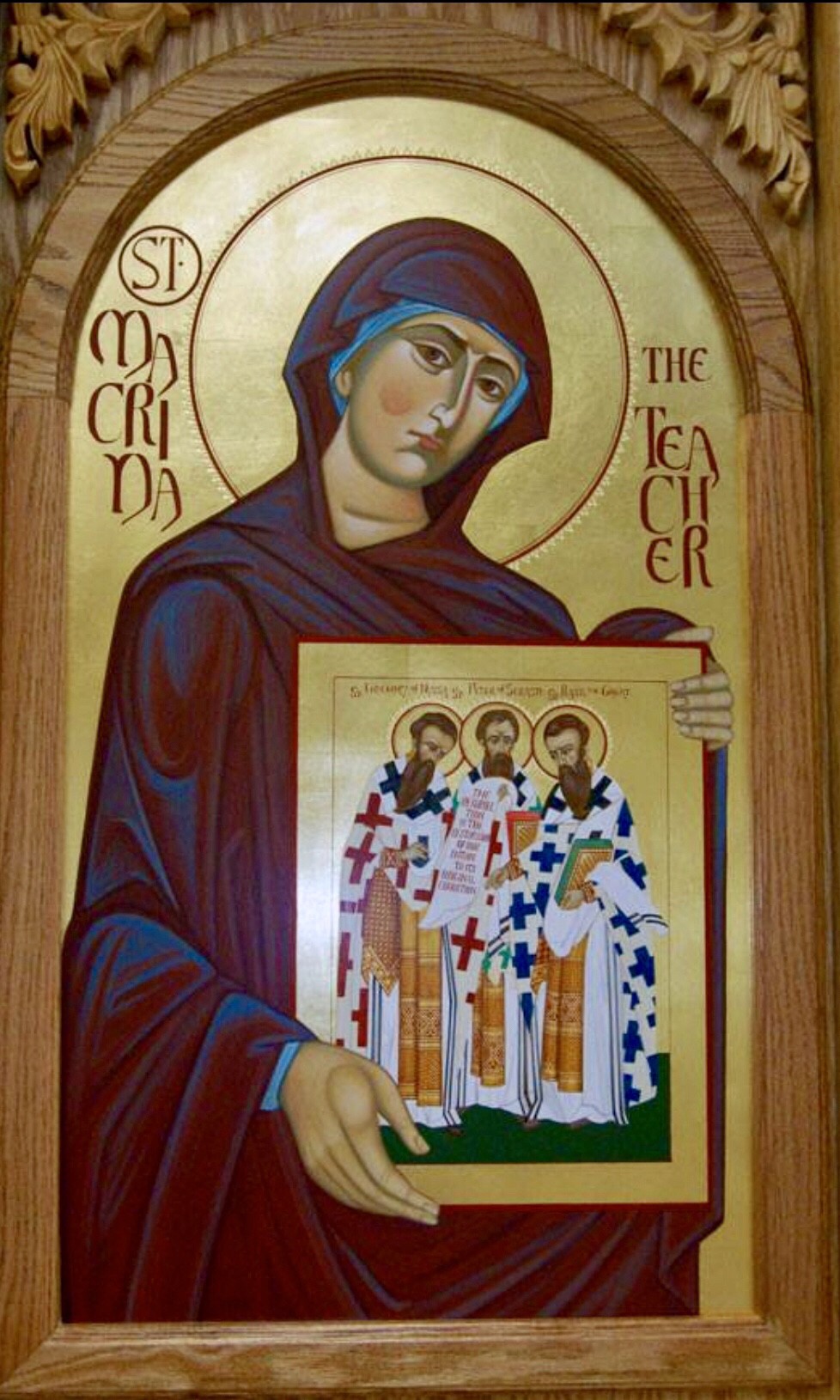 The Byzantine Church liturgically recalls Macrina (the Younger) (c. 330 — 19 July 379), a nun in the Early Christian Church. The churches, East and West, honor her witness. Her younger brother, Saint Gregory of Nyssa, composed her biography focusing heavily on her virginity and asceticism. The Church considers Macrina as a significant personage especially after Nyssa basically set the standards for what it means to be a holy Christian woman. He believed that a life of virginity reflected the “radiant purity of God.”
The Byzantine Church liturgically recalls Macrina (the Younger) (c. 330 — 19 July 379), a nun in the Early Christian Church. The churches, East and West, honor her witness. Her younger brother, Saint Gregory of Nyssa, composed her biography focusing heavily on her virginity and asceticism. The Church considers Macrina as a significant personage especially after Nyssa basically set the standards for what it means to be a holy Christian woman. He believed that a life of virginity reflected the “radiant purity of God.”
Our venerable mother was one of 9 children; several of her siblings were notables, two of whom were the Cappadocian Fathers.
The New Skete monks write of Macrina in this way:
Macrina was the older sister of the saints Basil and Gregory. After the early death of her husband, Macrina devoted herself to the education of her younger brothers. It was at this time, also, that she took up the monastic life, and it was due to her influence that her brothers learned the value of the spiritual life, and dedication to the service of the Church.
The mother of this remarkable family, St. Emelia, guided a small community of nuns on the family estate in Pontus. Macrina succeeded her mother as the head of the monastery, and in time founded other communities for women.
She spent her last days with her brother, Gregory, the bishop of Nyssa. The funeral oration he said over his sister is a moving testament to the love and esteem not only of a brother, but also one of many who were spiritually enriched by her example.
In literature, Gregory of Nyssa composed a “Dialogue on the Soul and Resurrection” (peri psyches kai anastaseos), entitled ta Makrinia (P.G. XLVI, 12 sq.), to commemorate Macrina